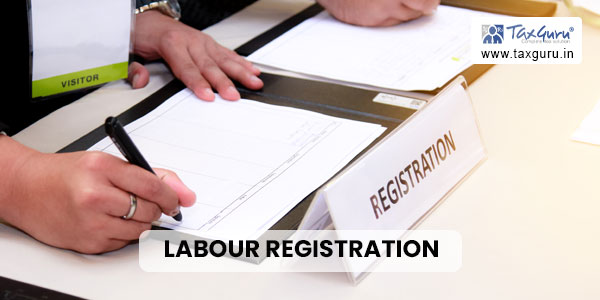Labour registration is a process by which workers can formally enter the workforce and gain access to a range of benefits, protections, and rights that are enshrined in law. The process is typically overseen by government agencies, and it is an essential part of the social and economic infrastructure of many countries around the world. In this article, we will take a closer look at labour registration, its purpose, and its benefits.
What is Labour Registration?
Labour registration is a process by which workers formally enter the workforce and register with the appropriate government agency. The process typically involves filling out paperwork, providing proof of identity, and providing information about one’s employment history, skills, and qualifications. Once a worker is registered, they are typically issued an identification number, which can be used to access a range of benefits and services.
Purpose of Labour Registration
Labour registration serves several purposes, both for workers and for the broader economy. For workers, registration provides a way to gain access to a range of legal protections and benefits, including minimum wage laws, anti-discrimination laws, health and safety regulations, and access to social security and other government benefits. Registration also helps ensure that workers are paid fairly, that they have access to healthcare and other basic services, and that they are protected from exploitation and abuse.
For employers and the broader economy, labour registration serves as a way to monitor the workforce, ensure that employers are complying with labour laws and regulations, and to track employment trends and changes in the labour market. This information can be used to inform public policy, help target training and development programs, and to identify areas where investment and support are needed.

Benefits of Labour Registration
There are many benefits to labour registration, both for workers and for the broader economy. For workers, registration provides access to a range of legal protections and benefits, including minimum wage laws, anti-discrimination laws, health and safety regulations, and access to social security and other government benefits. It also helps to ensure that workers are paid fairly, that they have access to healthcare and other basic services, and that they are protected from exploitation and abuse.
For employers, labour registration helps to ensure that they are complying with labour laws and regulations, and that they are treating their employees fairly. It also helps to ensure that employers are able to access the skilled and qualified workforce that they need to compete in the global economy.
For the broader economy, labour registration helps to ensure that there is a stable and well-regulated workforce, which is essential for economic growth and development. It also helps to ensure that workers are able to access the training and support that they need to succeed in the modern economy, and that employers are able to find the skilled and qualified workers they need to drive innovation and growth.
Conclusion
Labour registration is an essential part of the social and economic infrastructure of many countries around the world. It provides workers with access to legal protections and benefits, helps to ensure that employers are complying with labour laws and regulations, and helps to support economic growth and development. By registering with the appropriate government agency, workers can gain access to a range of benefits and services, and help to build a more just and equitable society for all.





